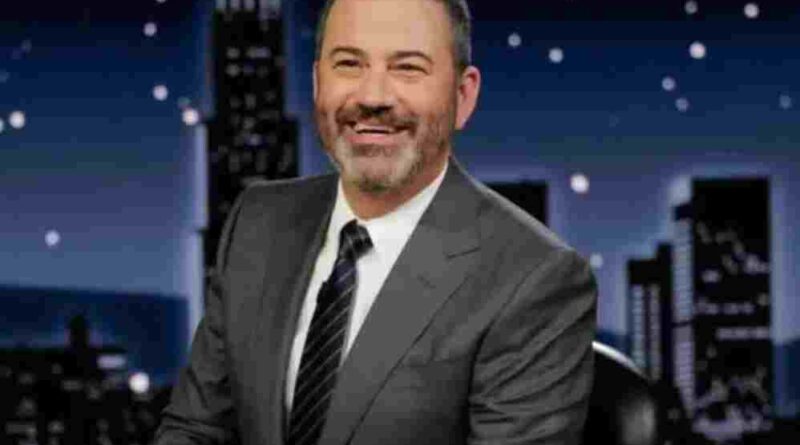Jimmy Kimmel Suspension Sparks National Debate on Free Speech and Political Influence
The suspension of Jimmy Kimmel’s late-night show has ignited a storm of controversy, placing the intersection of free speech, political pressure, and media responsibility under the national spotlight. What began as a segment of biting commentary on his nightly broadcast has now escalated into a conversation about the limits of satire, the role of regulators, and whether political power is being used to silence dissenting voices.
The Trigger: Kimmel’s Remarks
During a recent monologue, Jimmy Kimmel addressed the tragic killing of conservative activist Charlie Kirk. In his satirical style, Kimmel suggested that parts of the political right were using the incident to further partisan narratives. The tone of his comments, which blended sharp critique with humor, drew immediate backlash from conservative figures and media outlets who deemed his words insensitive and inappropriate.
What might have been an evening of late-night banter quickly evolved into a national issue when broadcasters and affiliates began pulling the show from their schedules, citing concerns over public outrage.
ABC Pulls the Plug
ABC, the network home of Jimmy Kimmel Live!, moved swiftly in response to the escalating controversy. The show was suspended indefinitely, a decision the company framed as a necessary step in light of affiliate pressure and public reaction. However, critics argue the suspension was less about sensitivity and more about political pressure—especially after regulatory authorities weighed in on the matter.
Political Pressure and the FCC’s Role
The debate intensified when Brendan Carr, the chair of the Federal Communications Commission, implied that stations airing Kimmel’s program could face repercussions. He urged broadcasters to stand against what he described as offensive programming, a move that raised alarm among free speech advocates.
Carr’s comments were notable not only for their substance but also for their political context. Appointed during the Trump administration, Carr has been vocal about pushing broadcasters to reflect what he calls “community standards.” Opponents argue that such statements cross the line into political interference, particularly when they appear to align with the interests of those in power.
Trump’s Reaction
Former President Donald Trump celebrated the suspension, calling it justified. He mocked Kimmel as untalented and insisted the show’s removal was due as much to low ratings as to offensive remarks. Trump’s public praise of the decision further cemented the perception that the suspension was entangled with politics rather than being a neutral response to public concern.
Backlash From Free Speech Advocates
The decision to suspend the show sparked outrage across the entertainment industry and beyond. Writers, actors, and comedians rallied in Kimmel’s defense, warning that the move set a dangerous precedent for silencing critical voices. Free speech groups echoed these concerns, arguing that satire—no matter how controversial—is a protected form of expression under the First Amendment.
Lawmakers on the left also weighed in, accusing regulators and broadcasters of bowing to political pressure. Some warned that allowing government officials or politically connected regulators to influence what content can and cannot air threatens the foundation of a free press.
A Nation Divided on the Issue
The country now finds itself divided. Supporters of the suspension argue that Kimmel crossed a line by mocking a tragedy and that broadcasters have the right—and even the duty—to ensure their content reflects public sensitivities. They frame the move as a matter of responsibility, not censorship.
Opponents, however, see it as a thinly veiled attempt to punish a critic of conservative politics. They worry that networks and affiliates will increasingly self-censor to avoid political retaliation, thereby shrinking the space for open debate and comedy that challenges those in power.
What’s at Stake
This controversy is not just about one television show. It raises bigger questions:
- Where is the line between satire and insensitivity?
- Should regulators have the power to pressure networks over content?
- Is political influence creeping too far into the entertainment and media industries?
- What does this mean for the future of late-night comedy, a genre that thrives on political critique?
The answers will have lasting implications, not only for Jimmy Kimmel but for the broader media landscape.
Looking Ahead
The situation remains fluid. ABC has not confirmed whether Kimmel’s show will return or under what conditions. Speculation abounds that an apology or negotiated compromise could pave the way for reinstatement, but many in Hollywood fear that conceding to political pressure now would open the door to further interference in the future.
Meanwhile, legal experts suggest that constitutional challenges could arise if regulatory threats are carried out. Courts may be asked to determine whether government officials have overstepped their authority in pressuring broadcasters over the content of entertainment programming.
Conclusion
The Jimmy Kimmel suspension is more than a television story—it is a test of democratic values, press freedom, and the resilience of satire in a polarized America. Whether seen as justified accountability or dangerous censorship, the decision has forced the nation to confront uncomfortable questions about the role of comedy, the reach of government regulators, and the balance between sensitivity and free expression.
In the end, the outcome may determine not just Kimmel’s future on late-night television but also how far the U.S. is willing to go in defending—or curbing—the freedom of speech that has long been its hallmark.
Disclaimer
The information and content shared on digitalgithub.com — including articles, blogs, news, guides, and other resources — is intended for general informational and educational purposes only. We do not guarantee the completeness, reliability, or suitability of any information. Always seek the guidance of a qualified professional before making decisions based on the information you read. Use this site at your own risk.

